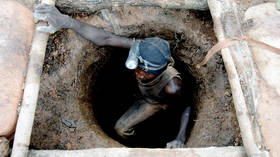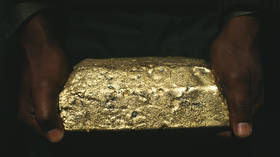Canadian miner seeks to resolve dispute with African state

Canadian firm Barrick Gold Corporation has announced an agreement with Mali’s government on resolving claims and disputes over concessions to mines in Loulo and Gounkoto, located in the western part of the Sahel nation.
The contract terms will be made public once the settlement is finalized, the world’s second-largest miner said in a statement on Monday. The announcement comes just two days after Malian authorities arrested four senior Barrick employees on suspicion of financial crimes.
The company, one of the West African country’s top gold miners, has reportedly been under increasing pressure since 2020, when the military took power in a coup. Both sides have been negotiating a new extraction contract that would give Mali’s military-led government more control over its minerals.
The landlocked state is one of Africa’s leading gold producers, with large-scale mining operations such as the Loulo and Gounkoto sites, which are 80% owned by Barrick and 20% by the Malian government. However, last year, the former French colony enacted a new mining code that allows the state to own up to 30% of any new projects.
On Monday, Barrick’s president, Mark Bristow, stated that the company and successive Malian regimes have had 30 years of mutually beneficial relationships, with occasional disagreements always resolved peacefully.
“The current negotiations have proved challenging but we’re encouraged by the government’s recognition of the importance of securing the long-term viability of the Loulo-Gounkoto complex as a substantial contributor to the Malian economy,” Bristow stated.
Recent World Gold Council data ranks Mali the second-top gold-producing country in Africa after Ghana, with an output of 105.0 tons of industrial gold. Although gold extraction dominates Mali’s mining industry, the country also mines diamonds, rocksalt, phosphates, semi-precious stones, bauxite, and iron ore.
In July, Barrick announced that it had invested more than $10 billion in the Malian economy over the previous 29 years, with its mines accounting for 5% to 10% of the country’s GDP annually.
Last year, Mali and Russia signed a memorandum of understanding to build a 200-ton-per-year gold processing plant in the capital, Bamako, which would be the country’s largest once completed. The refinery deal followed an earlier agreement between the Russian state nuclear energy company Rosatom and Bamako to explore minerals and collaborate on peaceful use of atomic energy in the African country.














